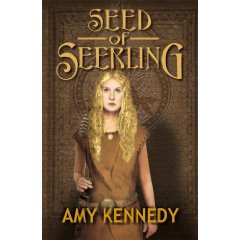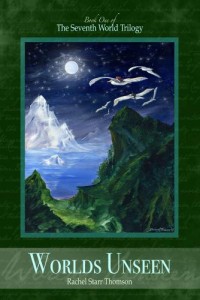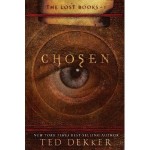This is the last day of the CSFF blog tour of the Lost Genre Guild Web site.
I decided to evaluate the site based on its main objective: to increase interest and awareness on the part of potential buyers of this type of fiction. Let’s see how easily someone interested in this type of fiction might find this site.
The first thing I am looking at is its Google Page Rank. This is 3 out of 10. This is fairly good but could be better. I would like to see a 4, which is attainable for a site like this. (My own MotherboardBooks.com has a 4.) A higher Google Page Rank will bring the site higher in the free Google search listings for any particular relevant keyword. (I can find the Page Rank of any site using my Google Toolbar, which I installed to my browser.) The way to bring up the Google PageRank is to get more incoming links to the site, especially links that highlight keywords that people search on, such as “Christian book reviews.”
Next I am looking at the description in the HTML code for the site. This description is what someone searching on Google will see first. Here it is:
“Home page of the Lost Genre Guild. a web community of writers, artists and readers of Biblical
speculative fiction, founded by Frank Creed.”
This isn’t really addressed to the seeker on the Internet, who has no idea what Biblical
speculative fiction is or who Frank Creed is. Let’s imagine this is one of my teenage sons looking
for fantasy works with a Biblical worldview. He is very likely to move on. Here’s a better
one to consider:
“Looking hard for fantasy or science fiction with a Biblical worldview? Tolkien and CS Lewis fans need
look no farther. There ARE books being written in this vein and you CAN find information about them here.”
A set of words that many people use to search for this type of info is “Christian book reviews.”
It would be good to work that into the title of the page, to help the Google rankings. You can
find more using the Google Keyword Tool; just Google to find it.
So, how about the blog posts? Do they further the Web site’s goal?
Here’s an admission that the earlier ones didn’t, at
http://blog.lostgenreguild.com/2008/11/and-were-back.html In this post,
Grace Bridges said the blog posters had ceased posting for a time, but that it
had just been decided to start up again with a new goal.
“Where beforehand this blog contained essays by writers and for writers,
henceforth it shall bear tidings of the world of the Lost Genre…for readers.
“Lord willing, this will be a place for fans of Christian speculative fiction to find
what they’re looking for, and even what they weren’t looking for but will definitely enjoy,”
she wrote.
I am glad for the redefinition of direction for the blog, and hope it will be very useful
to readers looking for this type of work.
Check out other posts on the CSFF blog tour:
Brandon Barr
Justin Boyer
Keanan Brand
Kathy Brasby
Grace Bridges
Valerie Comer
Courtney
Frank Creed
Amy Cruson
CSFF Blog Tour
Stacey Dale
D. G. D. Davidson
Janey DeMeo
Jeff Draper
April Erwin
Karina Fabian
Andrea Graham
Todd Michael Greene
Katie Hart
Timothy Hicks
Joleen Howell
Jason Isbell
Cris Jesse
Jason Joyner
Kait
Carol Keen
Lost Genre Guild
Mike Lynch
Magma
Margaret
Rachel Marks
Rebecca LuElla Miller
Nissa
John W. Otte
Steve Rice
Crista Richey
Mirtika
Hanna Sandvig
James Somers
Robert Treskillard
Steve Trower
Speculative Faith
Jason Waguespac
Phyllis Wheeler
Timothy Wise



